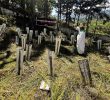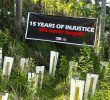Freedom of Association
The law provides for freedom of association, and the government generally respected this right in practice.
c. Freedom of Religion
The law provides for freedom of religion, and the government generally respected this right in practice. Although Christianity, particularly Roman Catholicism, was the predominant religion, there is no state religion, and church and state are legally separate.
The government’s campaign against the ASG terrorist group and RSM led some human rights NGOs to accuse the police and military of unfairly targeting Muslims for arrest and detention. However, most observers believed that discrimination against Muslims was grounded in cultural differences, not religious beliefs or practices. There were some reports of Muslim discrimination against Christians in areas where Muslims were the majority.
Intermittent government efforts to integrate Muslims into political and economic society achieved only limited success. Many Muslims claimed that they continued to be underrepresented in senior civilian and military positions and cited the lack of proportional Muslim representation in national government institutions (see section 3). Predominantly Muslim provinces in Mindanao lagged far behind the rest of the country in most aspects of socioeconomic development. The percentage of the population under the poverty level in the Autonomous Region in Muslim Mindanao (ARMM) was almost twice as high as the national average, with per capita income of $309 (P15,760) per year.
The teaching of religious classes in public schools is permitted with the written consent of parents, provided that it is conducted at no cost to the government.
Societal Abuses and Discrimination
Historically, the Christian majority has marginalized Muslims. The national culture, with its emphasis on familial, tribal, and regional loyalties, created informal barriers whereby access to jobs or resources is provided first to those of one’s own family or group network. Muslims reported difficulty renting rooms or being hired for retail work if they used their real names or wore distinctive Muslim dress. As a result, some Muslims used Christian pseudonyms and did not wear distinctive dress when applying for housing or jobs.
An estimated 400 to 1,000 Jews lived in the country. There were no reports of anti-Semitic acts.
For a more detailed discussion, see the 2006 International Religious Freedom Report.
d. Freedom of Movement Within the Country, Foreign Travel, Emigration, and Repatriation
The law provides for these rights, and the government generally respected them in practice. Travel abroad was limited only in rare circumstances, such as when a citizen has a pending court case. Government authorities discouraged travel by vulnerable workers to areas in which they face personal risk (see section 5).
The government retained its formal yet ineffective ban on travel to Iraq to work. The Philippine Overseas Employment Administration (POEA) sought to limit departures for work abroad to persons the POEA certified as qualified for the jobs. Millions of citizens worked overseas and remitted money home. Such remittances accounted for approximately 11 percent of the gross national product.
Forced exile is illegal, and the government did not use it.
Extrajudicial Killings, Terrorism









